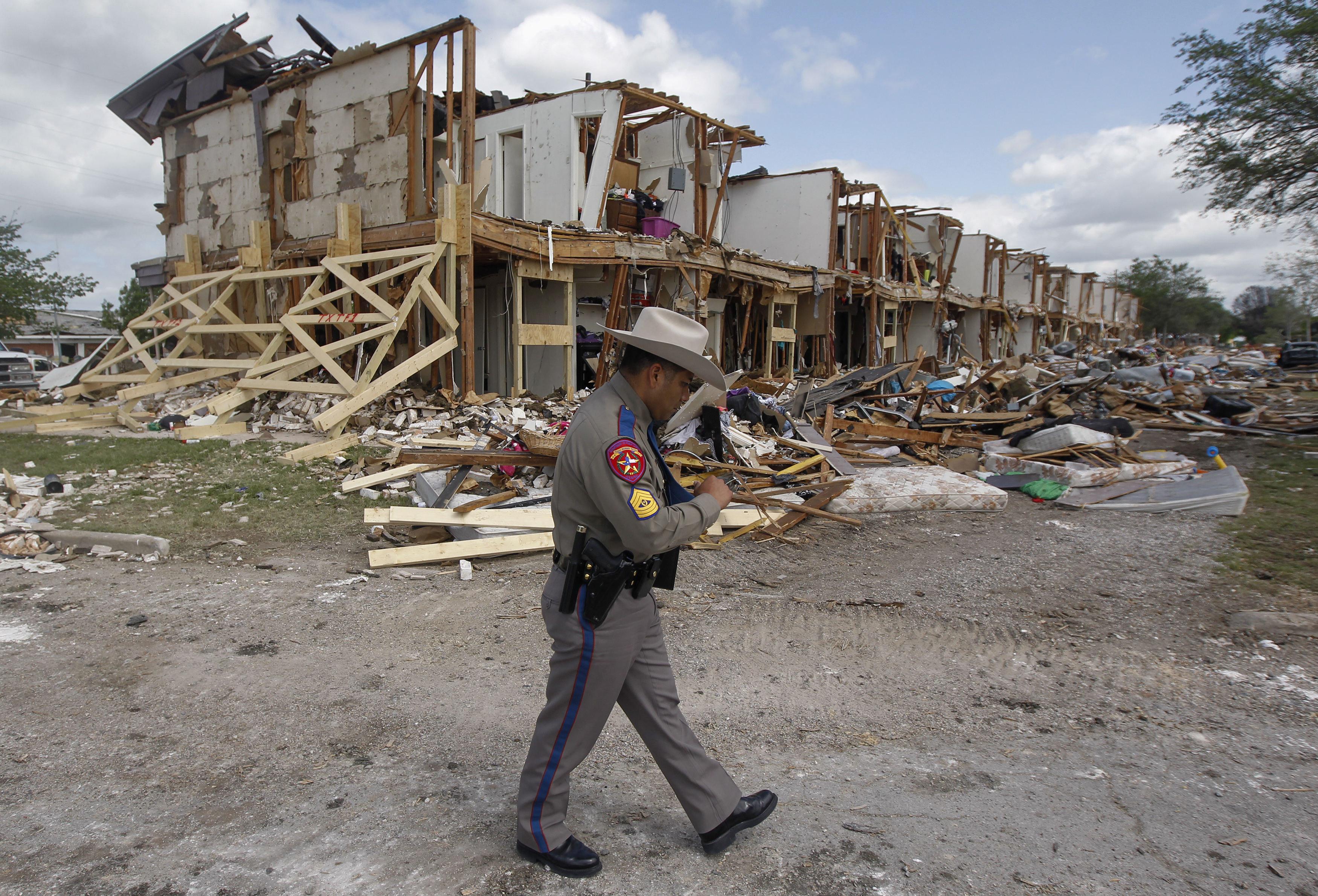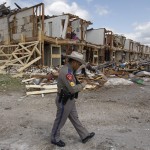Texas Still Considering Solutions to Prevent Another West

Terrence Henry/StateImpact Texas
Crews are still working to clear the site of the explosion in West, Texas.
This week marks a year since a fertilizer plant exploded in the small Texas town of West, killing fifteen, injuring over a hundred, and destroying homes and local schools. Today, a meeting at the state legislature made it clear that lawmakers aren’t in any hurry to use regulation to guard against something like West from happening again.
The House Homeland Security and Public Safety Committee met for the first time since August to look into the industrial disaster. The State Fire Marshal told the committee that his office is still not sure what sparked the fire. It could have been electrical, or a malfunctioning golf cart battery, or it could have been started on purpose. But without question, the cause of the destructive blast was ammonium nitrate. The fertilizer had been legally stored in a wooden building with no sprinkler system.
What new rules and regulations should be considered to prevent another West? Two clear solutions emerged at the hearing: stricter standards for storing ammonium nitrate, and more training and coordination for local officials and first responders.
There are a few dozen fertilizer facilities in Texas like the one in West, older buildings storing the chemical in wooden structures.
“There’s two choices,” testified State Fire Marshal Chris Connealy. “If you want to keep ammonium nitrate in a combustible facility, you need to put fire sprinklers in there. An alternative that doesn’t involve sprinklers, but still meets best practices, is to build a non-combustible storage bin for the ammonium nitrate.”
Connealy is advocating for a statewide fire code, which Texas doesn’t have. (Counties with less than 250,000 people — or counties that aren’t adjacent to a county of that size — can’t have a fire code under state law.) One option would be to enact a statewide fire code that only applies to large ammonium nitrate facilities. Another would be to allow all counties to pass fire codes.
Connealy said increased regulation for fertilizer plants wouldn’t be “overly burdensome” and could save lives.
Much of the testimony also focused on the need for more first responders and local officials to have emergency training. Most of the lives lost in the West explosion were first responders. Nim Kidd, Chief of the Texas Division of Emergency Management, testified that there are no requirements for emergency training of mayors or county judges.
“There’s nothing that I’m aware of in the law or the rules require you to sit down and take an emergency management 101 class,” Kidd said. “And I think awareness, for all of us, is our number one tool in our tool box. We’ve got to have knowledge of the hazards in our communities.”
Rep. Joseph Pickett (D-El Paso), chair of the committee, said that he wants to come up with “narrow legislation.” “Public safety is paramount here,” Pickett said. “So what are we going to have in place in session in January to try and keep this from happening again? I think that’s our responsibility and duty.”


